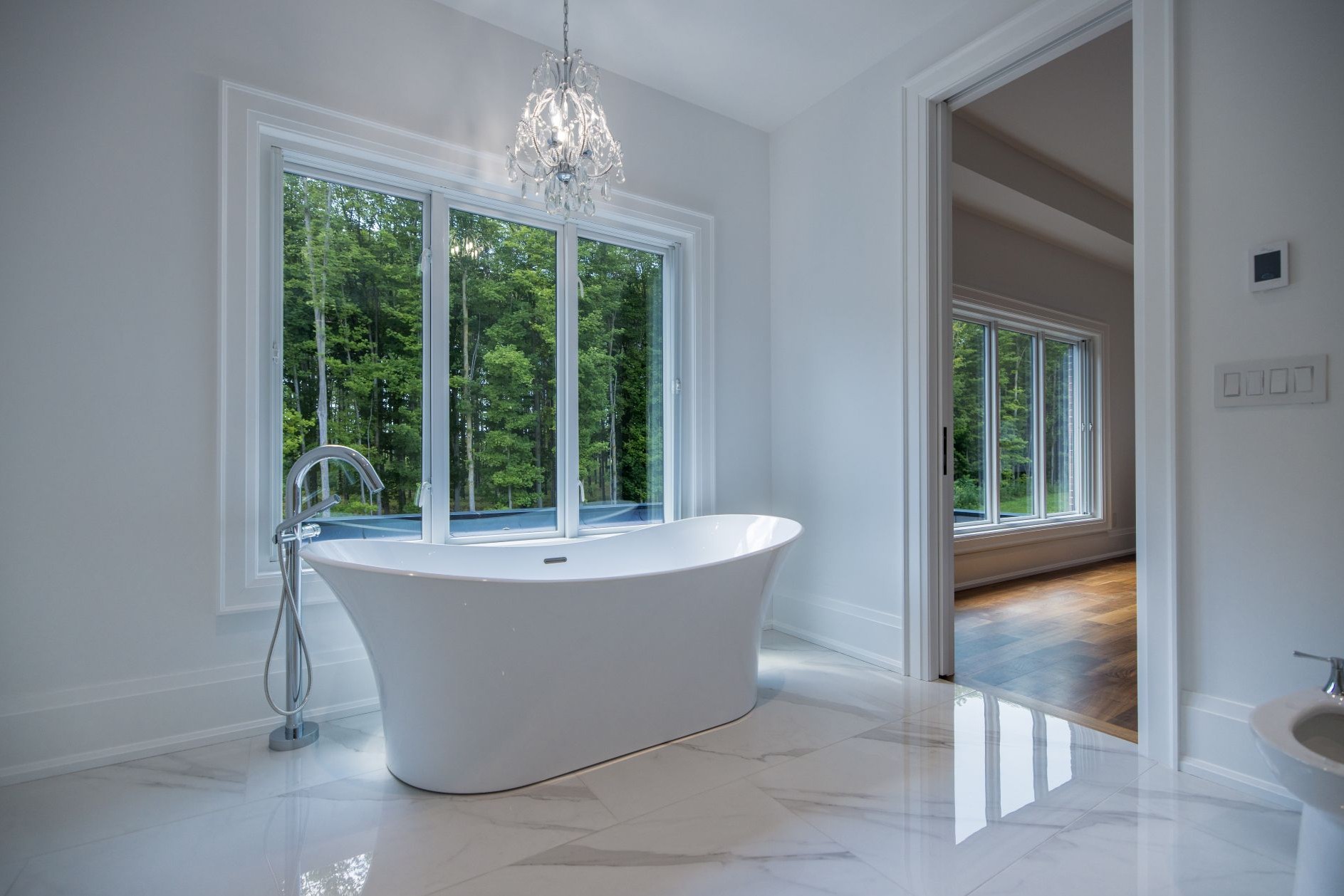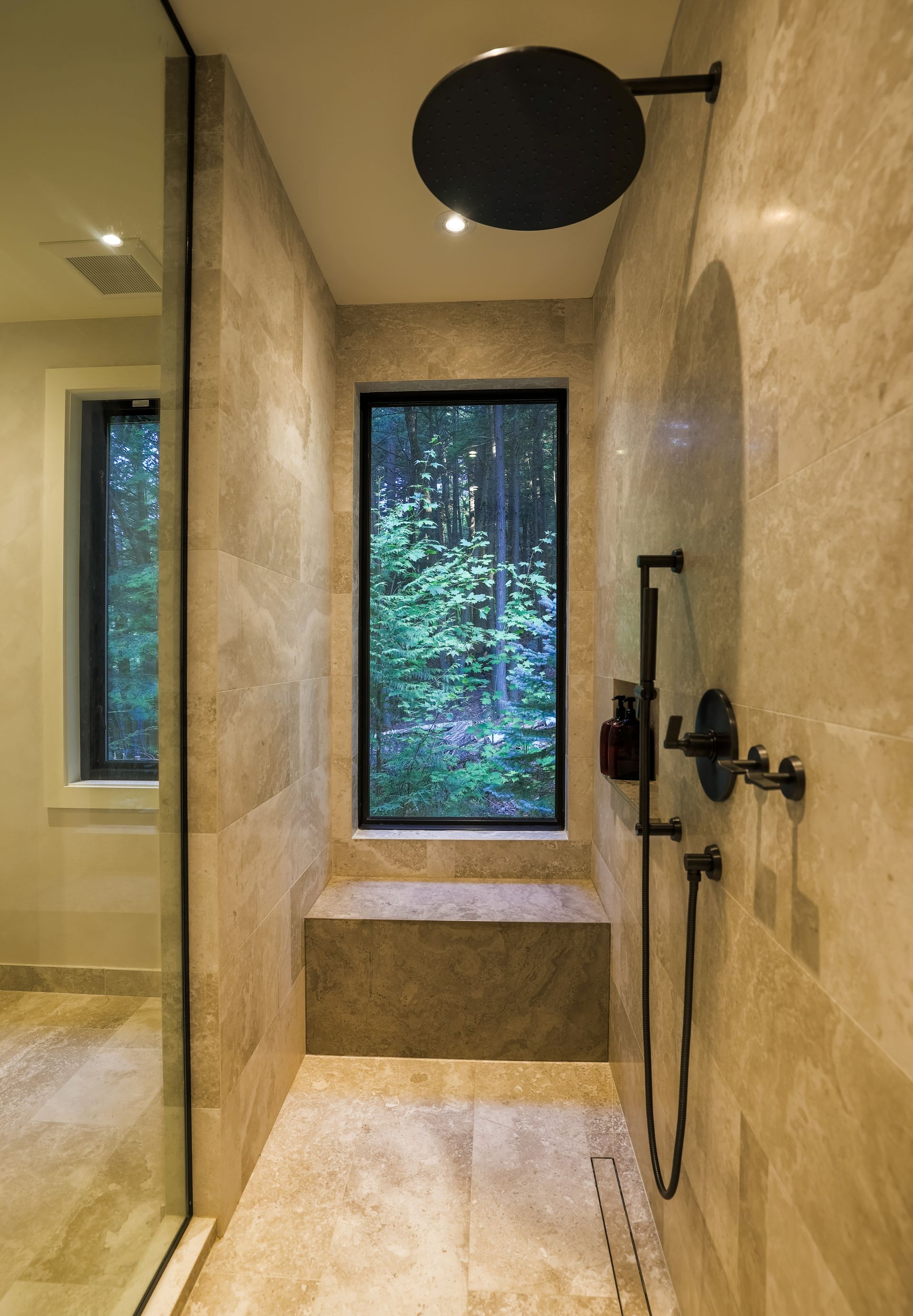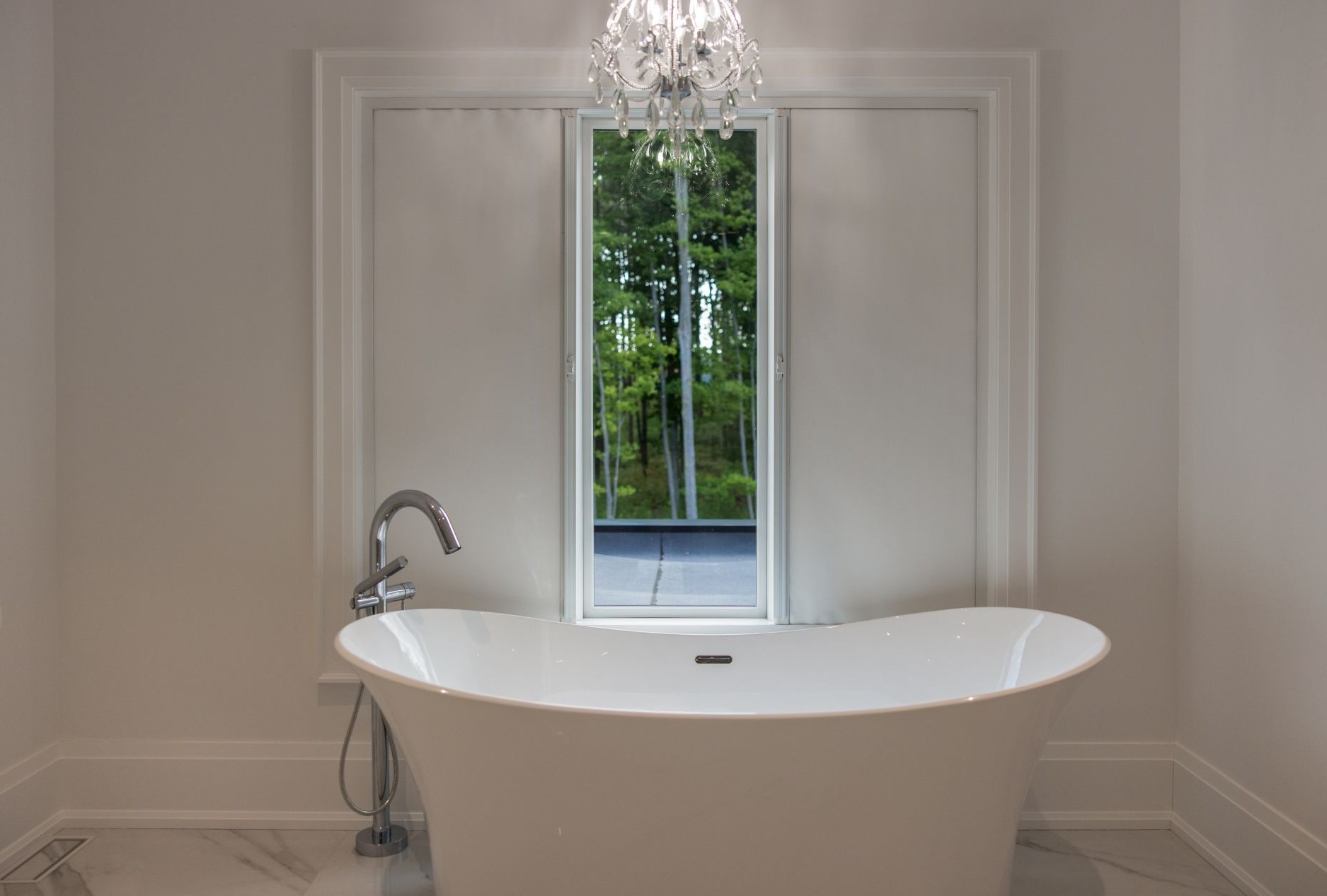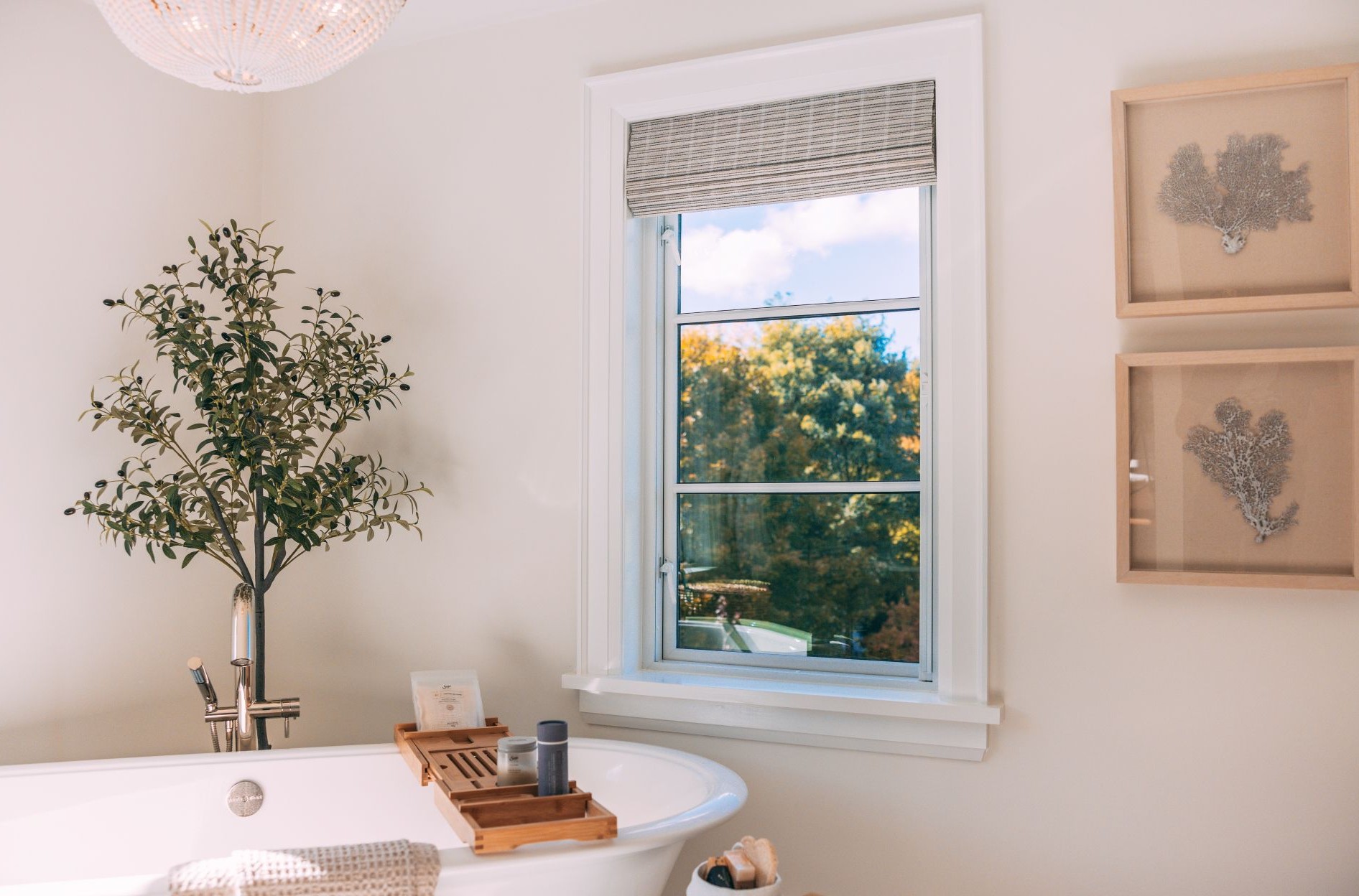
Window Replacement & Repair
How Much Does It Cost to Renovate a Bathroom in 2025?
A bathroom renovation is one of the most rewarding home improvement projects you can take on. Not only does it make your daily routines more enjoyable, but it also adds real value to your home!
That said, anyone who has looked into remodeling knows that costs can vary dramatically. The price tag depends on dozens of choices you’ll make along the way, from a simple refresh with new paint and fixtures to a full luxury overhaul with custom cabinetry and spa features.
As such, how much does it cost to renovate a bathroom in 2025? Let's find out!
Key Takeaways
- Renovating a bathroom in Toronto typically costs between $9,000 and $42,000+, significantly influenced by the size of the bathroom and the extent of remodeling.
- Bathroom size, scope, and material choices have the greatest impact on the final price. Larger bathrooms and major structural changes will always cost more, while the quality of your new bathroom fixtures, tiles, and finishes can push your budget higher or keep it in check.
- Every renovation has hidden costs and surprises, such as outdated wiring, mold, or water damage. You should set aside a contingency budget to make sure these surprises don’t derail your project.
- Smart planning can help you save money without sacrificing style. For example, you can stick to the same layout, mix high- and low-end finishes, and handle small DIY tasks yourself to stretch your budget further.
Average Bathroom Renovation Costs

Bathroom renovation costs can vary widely based on several factors, including the bathroom size, the scope of the project, the materials chosen, the complexity of the design, and others. On average, bathroom renovations cost between $9,000 and $42,000. Here's a quick breakdown:
The most expensive part of a bathroom remodel is often the shower area, which includes the bathtub, shower, and walls. Elements such as plumbing, water fixtures, and tiles also contribute significantly to the total renovation costs.
The following sections detail bathroom costs based on the budget and scope of your project, providing a clearer picture of what to expect.
Economy Bathroom Renovations
Economy renovations focus on essential updates that improve functionality and appearance without major structural changes. These projects typically maintain the existing layout to minimize the amount spent on plumbing and electrical work.
Here are some examples:
- Fresh paint and minor wall repairs
- Basic fixture replacement (toilet, sink, faucets)
- Standard acrylic bathtub installation
- Basic ceramic tile flooring
- Pre-fabricated vanity with laminate countertop
- Standard lighting fixture updates
- Basic bathroom accessories (towel bars, mirrors)
- Minimal plumbing adjustments
Standard Bathroom Renovations
Standard renovations usually imply replacing existing materials with better ones (but not premium ones!) and moderate layout changes. Here are some examples:
- Complete tile work for floors and shower walls
- Mid-range porcelain or ceramic tiles
- Walk-in shower with a shower stall
- Semi-custom vanity with quartz or solid surface countertop
- Upgraded plumbing fixtures and cabinetry hardware
- Improved lighting design with multiple fixtures and pot lights
- Built-in storage solutions and niches
- Moderate plumbing relocations
- New bathroom ventilation systems
High-End Bathroom Renovations
High-end renovations usually feature premium materials and custom design elements, often involving significant layout changes and structural modifications.
Here are some examples:
- Natural stone or high-end porcelain tile throughout
- Custom cabinetry and millwork
- Premium countertops (granite, marble, or engineered quartz)
- Luxury shower systems with multiple shower heads
- Heated flooring (radiant floor heating)
- Custom glass shower enclosures
- High-end lighting design with dimmers
- Premium plumbing fixtures in designer finishes
- Layout modifications requiring plumbing relocation
- Custom storage solutions and built-ins
Luxury Bathroom Renovations
Luxury renovations imply building spa-like retreats with top-tier materials and custom features. They often involve expanding the bathroom footprint or complete structural changes.
Here are some examples:
- Imported marble, natural stone, or designer tiles
- Completely custom cabinetry and furniture-grade millwork
- Freestanding luxury bathtubs
- Steam showers or saunas
- Smart home technology integration
- Underfloor heating systems
- Custom lighting with architectural features
- High-end fixtures in premium finishes (brushed gold, matte black)
- Major structural changes and space expansion
- Professional interior design services
- Advanced ventilation and air quality systems
- Luxury accessories and finishing touches
Detailed Bathroom Renovation Cost Breakdown

Before planning your bathroom renovation budget, it's important to understand where exactly your money will be going. As such, in the following sections, we'll discuss some standard bathroom upgrades, what they imply, and how much they cost.
Demolition and Debris Removal
Before working on your new bathroom, the contractors need to strip down the old bathroom. Demolition involves removing old tiles, fixtures, cabinets, and anything else that needs to be thrown away. This stage requires careful handling to avoid damaging pipes or electrical lines. This is why it needs to be done by professionals.
Furthermore, this is when the contractors ensure that there are no hidden issues that need to be addressed (we're talking mold or water damage, for example).
Typical costs: $500 - $2,000+ depending on the bathroom's square footage, waste disposal fees, and whether hazardous materials (like asbestos) are present.
Plumbing and Electrical Work
Then, the team will focus on updating or rerouting plumbing or wiring. They may have to move water lines for a new shower layout, upgrade pipes, or rewire for modern lighting or outlets.
This step is the backbone of a functional, safe bathroom. Cutting corners here can lead to leaks, poor water pressure, or dangerous electrical faults.
Typical costs: $1,000 - $5,000+ depending on complexity, age of the home, and whether electrical fixtures are being relocated.
Tiling and Flooring
The floor and wall tiles define much of the bathroom's look and durability. It's important to note that tiles not only ensure aesthetic appeal but also moisture protection. If they're poorly installed, they can crack and cause water damage. Therefore, waterproofing and subfloor preparation are crucial here.
Typical costs: $2,000 - $10,000 depending on tile quality, room size, and labour rates.
Replacing Windows and Window Treatments

If the bathroom window is old or poorly sealed, it's recommended to replace it to avoid mold growth, poor air circulation, and an overall uncomfortable space. A new, energy-efficient window won't only improve your bathroom's insulation; it will also bring in natural light, which can completely transform the way your bathroom feels! It will appear larger and more welcoming!
Additionally, windows of exceptional quality prevent excess humidity, reduce energy bills, and create a healthier environment. And don't forget about window treatments, which are essential for privacy.
Typical costs:
- Window replacement: $500 - $2,500 per window, depending on size, type, and energy-efficiency features.
- New window installation (cutting into walls): $2,000 - $5,000+.
- Window treatments: $100 - $600, depending on style and materials.
Fixtures and Fittings
During this process, the contractors will install the sink(s), toilet(s), bathtub(s), shower(s), faucet(s), and showerhead(s). The prices for these fixtures and fittings vary widely, so the final price highly depends on what you choose.
It's important to have professionals install all these elements to avoid any water leaks. After all, they determine how comfortable you'll feel in your bathroom and how easy it'll be to use it! Moreover, some high-end models can also improve efficiency (for example, you can opt for low-flow toilets or water-saving showerheads).
Typical costs: $1,500 - $8,000, depending on the number of fixtures and chosen brands.
Cabinets and Storage Solutions
Here we're talking about vanities, shelving, and built-in storage solutions, which are essential for your bathroom's functionality. They'll help you keep your bathroom organized, especially if it's small.
Typical costs: $1,200 - $6,000 depending on size, materials, and customization.
Painting, Trim, and Finishing Touches
Once the major renovation work is complete, bathroom walls, ceilings, and trims are painted or finished. This is also when accessories like mirrors, towel bars, and lighting fixtures can be installed. All these finishing details complete the look of the bathroom and tie together the design.
Typical costs: $500 - $3,000 depending on materials and labour.
Unexpected Repairs and Contingencies
It's important to set aside some money to cover unexpected repairs. For example, if the contractors discover hidden mold issues, you'll have to hire a professional mold removal company to get rid of it before proceeding with the bathroom upgrades. This can be costly, depending on the type of mold and affected area.
Typical costs: plan for 10-20% of the total renovation budget.
Factors Influencing Bathroom Renovation Costs

As mentioned earlier, the final price for your bathroom renovation project highly depends on the materials you choose, the necessary structural changes, and other factors. In the following sections, we'll discuss all of these factors in detail.
Bathroom Size
The size of your bathroom is one of the most obvious cost drivers. A small half-bathroom or a powder room typically requires fewer tiles, fixtures, and finishes, while commonly renovated rooms like a master bathroom or a guest bathroom can involve multiple sinks, a separate shower and bathtub, more lighting, and extensive storage.
Even small bathroom renovations, however, can become costly if you plan for a major bathroom renovation with high-end finishes. The cost per square foot is often higher when dealing with compact spaces that demand precision.
Scope of Work
The extent of changes planned has a major impact on the bathroom renovation cost in Toronto.
For example, a cosmetic refresh, such as repainting walls, replacing faucets, or upgrading a mirror, falls on the lower end of renovation expenses. In contrast, a full renovation that involves tearing down walls, relocating plumbing lines, or rewiring the space will add significant labour and material costs.
Essentially, the more you change the underlying structure of the bathroom, the more expensive the project becomes.
Quality of Materials and Finishes
The total price for your bathroom remodeling project highly depends on what materials you choose.
Standard ceramic floor tiles, prefabricated vanities, and basic bathroom fixtures are cost-effective options that still deliver functionality. On the other hand, luxury selections such as marble countertops, natural stone tiles, high-end faucets, and custom-built cabinetry can quickly multiply expenses.
In short, if you want your dream bathroom designed with luxury materials, you'll reach the higher limit of the average Toronto bathroom renovation costs.
Labour and Professional Expertise
Labour is often the single largest expense in a bathroom renovation, and many homeowners opt not to save money on this, given that the expertise of the contractors directly influences the bathroom's functionality. If not installed correctly, even the best materials will perform poorly and will need to be repaired or even replaced sooner rather than later.
You'll have to hire professional contractors that can handle different jobs: licensed plumbers, electricians, tile installers, and carpenters, to name a few. And, naturally, labour costs depend on their expertise.
Professional bathroom contractors with extensive experience have higher rates. While the cost implications of hiring experienced professionals may seem significant at first, it protects you from future issues such as water leaks, poor electrical wiring, or uneven flooring.
Structural and Hidden Issues
One of the most unpredictable elements of bathroom remodeling that can influence the final cost of the project is what lies beneath the surface.
For instance, older homes or poorly maintained bathrooms often reveal hidden problems such as rotting subfloors, water damage, mold growth, or outdated wiring and plumbing. These issues must be addressed before new materials are installed, and they can add both time and expense to the project. Therefore, make sure to set aside a contingency budget.
Design Complexity
The complexity of your design directly affects the average cost of the project. If you want a simple layout with straightforward installations (which also require fewer materials), the price will be lower. These projects are much faster and easier to complete.
However, if you want a complete renovation with intricate tile patterns, built-in niches, custom vanities, frameless glass showers, and layered lighting schemes, you'll have to hire experienced bathroom renovation contractors who can handle the installation complexity of these upgrades. Even small design choices, such as opting for mosaic tiles instead of larger formats, can increase labour intensity and therefore installation costs.
Location and Regional Pricing
Where you live also plays a significant role in the final bill. In metropolitan areas or regions with high demand for skilled labour, contractors charge higher rates.
Plus, labour costs and material costs for a full bathroom remodel can also vary by region, particularly if certain finishes must be shipped in.
Permits and Regulations
Depending on the project scope, you may need building permits: for plumbing, electrical, or structural changes. For example, if you want to install a window in a previously windowless bathroom, you may need a permit.
These permits not only affect the final cost but also influence timelines, since inspections may be necessary at various stages of the project.
While it may be tempting to skip this step, working without considering legal and permit requirements can create problems when selling your home or result in fines.
Tips to Reduce Bathroom Renovation Costs

Renovating a bathroom is quite costly, yes... But there are some ways to reduce these costs, so don't worry too much just yet! With smart planning and careful decision-making, you can achieve a stylish and functional space without overspending. As such, here are some tips that can help you in this regard!
1. Keep the Same Layout
If you move plumbing lines for sinks, toilets, or showers, prepare for significant costs. So, if you don't have a high budget, just keep the existing layout and focus instead on upgrading fixtures and finishes. This way, you can save significantly on both plumbing and electrical work.
2. Refinish Instead of Replacing
Not everything needs to be brand-new. The bathtub, the cabinets, and even the tile can often be refinished rather than replaced entirely. For example, reglazing a tub can give it a fresh look at a fraction of the cost of a new one.
3. Choose Cost-Effective Materials
There are budget-friendly alternatives that still look high-end. For instance, porcelain tiles can mimic natural stone at a much lower price, and prefabricated vanities often provide excellent durability and style without the cost of custom cabinetry.
4. Mix High and Low Finishes
You can strategically splurge on a few statement pieces, like a designer faucet or feature wall tile, while saving on other elements, such as standard flooring or simple storage solutions. This approach allows you to achieve a premium look without overspending across the board.
5. Handle Simple Tasks Yourself
While plumbing and electrical work should definitely be left to licensed professionals, tasks like demolition, painting, or installing accessories (mirrors, towel racks, shelving) can be done by homeowners with basic DIY skills. This reduces labour costs considerably.
6. Shop Sales and Outlet Stores
Many home improvement retailers offer discounts, clearance items, and scratch-and-dent sales that can yield big savings on tiles, fixtures, and vanities. If you plan your renovation timeline around sales events, you can stretch your budget further.
7. Get Multiple Quotes
Labour costs can vary widely between contractors. This is why it's recommended to collect at least three detailed quotes. This not only ensures competitive pricing but also gives you a clearer picture of what’s included in the estimate.
8. Plan Ahead to Avoid Changes
Last-minute design changes or upgrades during the renovation can be very costly. If you manage to decide everything in terms of design, fixtures, and finishes before the renovation begins, you reduce delays, avoid reordering fees, and keep the project on budget.
Maintenance and Longevity Considerations
When planning a bathroom renovation, it’s important to think beyond the initial cost and consider how the materials you choose will perform over time. Bathrooms are high-traffic, high-moisture spaces, so durability and ease of maintenance should guide many of your decisions. Here's what to consider:
- Tile and grout: large-format porcelain tiles tend to require less maintenance than smaller tiles or natural stone, which may need regular sealing to prevent staining. Epoxy grout resists mold and discoloration better than traditional cement-based grout.
- Countertops: engineered quartz is highly durable and resistant to stains and scratches, so it's more practical than marble, which requires frequent sealing and careful upkeep.
- Fixtures and fittings: high-quality fixtures may cost more upfront but often last longer, resist corrosion, and maintain their finish. Cheaper faucets and showerheads can wear out quickly, leading to leaks and replacements.
- Cabinetry: moisture-resistant materials like plywood or marine-grade finishes are better suited for humid bathroom environments than particleboard, which can warp and deteriorate over time.
- Ventilation: a well-ventilated bathroom (via a strong exhaust fan or properly installed window) prolongs the life of all finishes by reducing excess humidity, which otherwise encourages mold, mildew, and wood damage.
- Regular maintenance: even the best materials need to be maintained properly. You should plan for routine cleaning, resealing stone surfaces if used, and checking caulking around tubs and showers to prevent water intrusion.
Final Thoughts
Renovating a bathroom is a significant investment, but it’s also one of the most impactful ways to improve your home’s comfort and value. If you research the market to understand where the money goes, and then weight your options carefully, planning for both style and durability, you can create a bathroom that fits your lifestyle and budget and lasts for years to come!
And don’t forget that if your renovation plans include new windows or window treatments, working with professionals ensures not only beautiful results but also proper ventilation, natural light, and energy efficiency.
Contact Magic today to learn more about our bathroom window installation services and let us help bring your renovation vision to life!
Frequently Asked Questions
How much does it cost to renovate a small bathroom?
In Canada, a small bathroom renovation typically costs between $9,000 and $20,000, with an average price of around $13,000 for most homeowners.
Can you redo a bathroom for $5,000?
Yes, you can renovate a bathroom for $5,000, but you'll need to focus primarily on cosmetic updates rather than major structural changes. This budget typically covers new paint, basic fixtures replacement, updated flooring with vinyl or laminate, and minor installations while keeping the existing layout intact.
Can you renovate a bathroom for $10,000?
You can renovate a bathroom with a budget of $10,000. This is a good budget for a comprehensive small to medium bathroom renovation in Canada, allowing for new flooring, updated vanity and sink, fixture replacements, and minor plumbing adjustments.
How much does it roughly cost to renovate a bathroom?
Bathroom renovations in Canada generally range from $5,000 to $40,000 or more, with the average mid-range renovation costing between $15,000 and $30,000.
What are the major components of bathroom renovation costs?
The major components of bathroom renovation costs encompass demolition and debris removal, plumbing and electrical work, tiling and flooring, fixtures and fittings, and cabinets and storage solutions.
How can I reduce bathroom renovation costs?
To reduce bathroom renovation costs, retain the existing layout, choose cost-effective materials, and consider taking on DIY tasks. These strategies can significantly lower expenses while still achieving a desirable outcome.
Do I need a permit for a bathroom renovation in Toronto?
You may need a permit for a bathroom renovation in Toronto, depending in what types of changes you'll make to the space.
How much does it cost to renovate a condo bathroom?
The condo bathroom renovation cost in Toronto range between $9,000 and $40,000, with most projects averaging around $25,000, with higher costs for a full remodel implying more expensive materials and extensive changes.